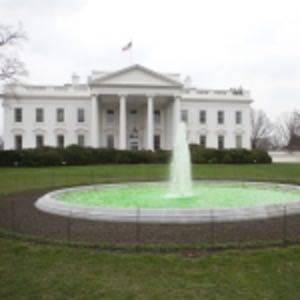If the Obama administration wanted a simpler way to protect consumer privacy, it didn’t need to issue a dense report or pressure Congress to pass laws increasing government oversight of the private sector – especially during an election year.

The White House simply needed to look in its own consumer protection playbook and take a page from its efforts to help credit card customers avoid crippling debt. Last year the Obama administration proposed rules for banks that require simple summaries of what their credit card agreements say; that followed similar rules requiring banks to show customers in monthly statements how long it would take to pay down their balance if they only paid the minimum amount due.
Instead, the Obama administration released the Consumer Privacy Bill of Rights in a Networked World Thursday, which lays out ideas for protecting consumers. The report calls for expanded Federal Trade Commission oversight of online privacy, but also gives companies a chance to help craft the new rules – if they even get past the current stage of voluntary guidelines.
“Delivering ‘free’ online services costs money, and there’s always some kind of trade-off. There’s value in personal information – even if it’s just used to target ads anonymously.” – Anthony Citrano, VP of Communications & Marketing of EdgeCast
Most of us have clicked “I Agree” without having fully read a privacy agreement when signing up for a social network, new app or highly-touted Web service. But most of us could probably make the time to read a list of bullet points outlining what the company can and cannot do with our private information once agree to the terms.
“Most privacy agreements are too long and filled with legalese,” said Anthony Citrano, VP of Communications & Marketing of EdgeCast, which voluntarily made an effort to clearly explain to customers how their data will be used. “By structuring policies with a high-level, ‘in a nutshell’ introduction, followed by a thorough list of the details, customers are more apt to understand where and how their data will be used and secured.”
Companies Get A Seat At The Table
Ieuan Jolly, a partner at Loeb & Loeb in New York, said yesterdays announcement does nothing more than let the United State catch up with countries that had already adopted similar policies to protect consumer privacy. The U.S. version differs, however, as the Obama administration needs to balance consumer protection with free enterprise.
“The proposed Bill of Rights…specifically asks all stakeholders – companies, online advertisers, and privacy and consumer groups – to participate in the process of developing and implementing voluntary codes of conduct,” Jolly said. “That may be good for businesses, since the devil is in the details’ and the industry may be able to influence the specifics of how a company would comply with the Bill of Rights.”
Facebook Weighs In
While yesterday’s report did not mention any companies by name, some portions seemed to target online heavyweights like Facebook. So much so that Facebook issued a statement even though it is in a quite period ahead of its initial public offering. Facebook Chief Privacy Officer-Policy Erin Egan “applauded” the Commerce Department’s privacy framework and said the company looks “forward to participating in the process.”
Indeed, consumers truly concerned about privacy may want to worry that the industry isn’t up-in-arms over the Consumer Privacy Bill of Rights. Trade group after trade group released press releases Thursday afternoon and evening, generally praising the report.
“By emphasizing that privacy practices should be flexible enough to accommodate the full range of consumer and business needs, the Administration’s plan will encourage continued innovation and drive economic growth,” Business Software Alliance CEO Robert Holleyman said in a statement. “Prescriptive technology mandates would stifle the development of new products and services, and discourage adoption of better privacy practices.”
Privacy Bill Not Needed
All of this means that, despite the report’s call on Congress to pass laws echoing its recommendations, legislation is unlikely.
“Today’s announcement shows us that voluntary codes of conduct are an effective means of companies ensuring are responsible custodians of consumer data,” said Dennis Dayman, Eloqua’s Chief Privacy and Security Officer. “Can this possibly lead to more discussion on draft legislation in the future? Sure it can, but the hope is that this won’t be needed.”
Most likely, what this all means is that companies will, for the most part, be able to continue doing business as usual.
“Delivering ‘free’ online services costs money, and there’s always some kind of trade-off. There’s value in personal information – even if it’s just used to target ads anonymously,” Citrano said.
















